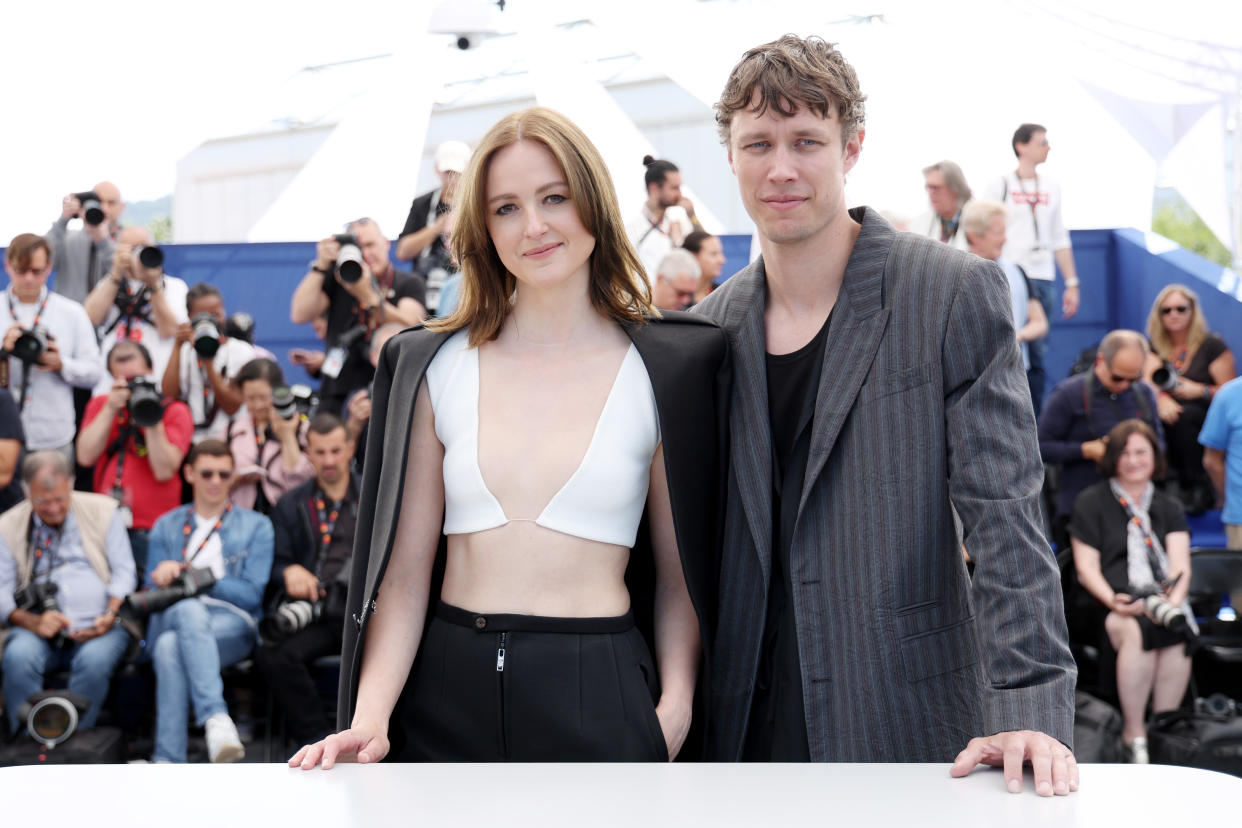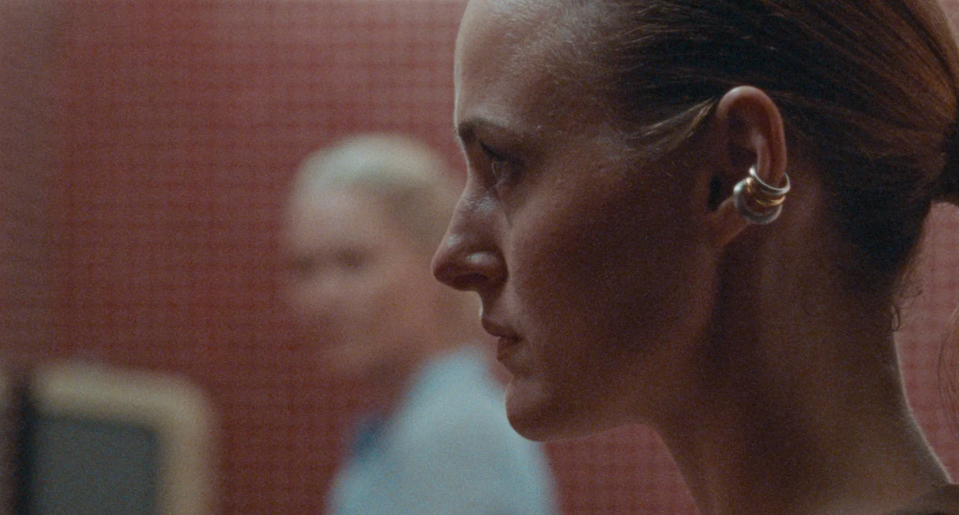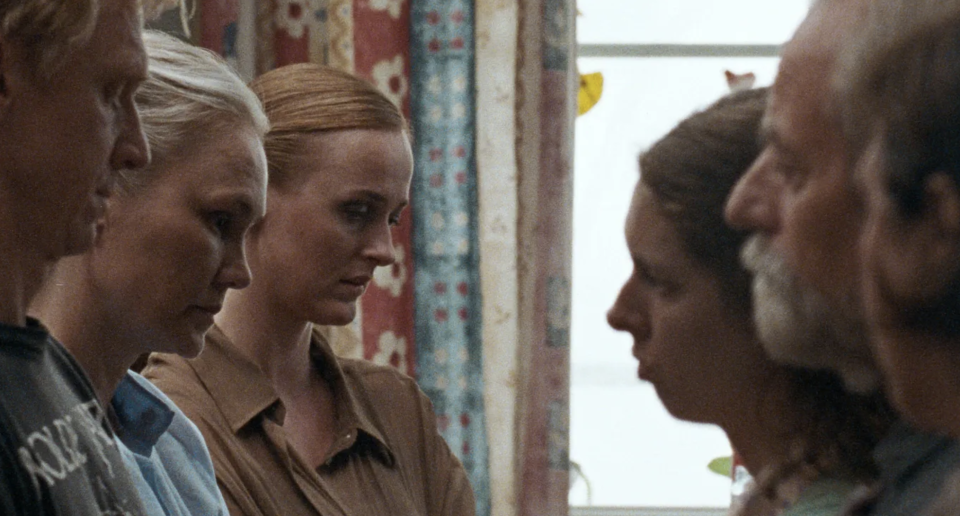How Ingmar Bergman’s Grandson Pushed Renate Reinsve to the Brink for Her Astonishing ‘Armand’ Performance

Halfdan Ullmann Tøndel, the grandson of cinema legends Liv Ullmann and Ingmar Bergman, “tried everything else” before ultimately deciding to become a filmmaker himself.
“I was like, I’m not going to do that because it has been done in my family,” he told IndieWire at the Cannes Film Festival, where he debuted his first feature, the tense psychodrama “Armand,” set entirely within the walls of a private school amid a meeting of disgruntled parents. “They have done alright.”
More from IndieWire
That is an understatement, and Tøndel was eager to not follow in their footsteps. Still, after taking a university course that involved filmmaking, he couldn’t resist. “I felt so good doing that, and then I applied to film school and after that I never looked back,” said Tøndel, who studied at Westerdals School of Arts. “I felt so alive, and I felt so me.”
“Armand,” which premiered in Un Certain Regard, has also been long in the works. It stars “The Worst Person in the World” Cannes Best Actress winner Renate Reinsve as Elisabeth, a mother of a six-year-old summoned to her child’s school, where the parents of another boy accuse her son of a shocking threat. Elisabeth, an actress, is immediately defiant, but we watch as she slowly unravels under the weight of what she is being told about her son’s behavior even if she doesn’t fully believe the charges. In a bravura scene, for instance, she starts laughing hysterically, unable to stop to the point of drooling. It goes on for longer than you expect before she eventually sobs.
The specific plot for “Armand” was inspired by a story a friend told Tøndel about an incident between two kids on a camping trip in youth. “I was super intrigued by how much I was able to imagine about this kid even though I didn’t know this kid and … even though I didn’t know the parents,” he said. But Tøndel had the character Elisabeth in his back pocket for years, a woman who is alternately strong in one moment and helpless the next. And, working with “Worst Person” casting director Jannicke Stendal Hansen, he knew he wanted Reinsve to play her.

The two became friends after making a short film together in just two days 2016. “Obviously, we were going to make something bigger one day,” Tøndel said.
He joked he was “so angry” when “Worst Person” supercharged her career. (He worked in second unit on “Worst Person” director Joachim Trier’s “Thelma.”) Still, Tøndel does admit, “As a director, you can be quite selfish sometimes,” adding that he wanted to be the one to give Reinsve her breakout moment. That said, Tøndel adds that it was probably a good thing Reinsve had done “Worst Person” by the time “Armand” went into production. Both he and Reinsve were more mature and confident in that work.
Case in point: The laughing sequence, which was just one line in the script going all the way to the first draft. Tøndel remembered telling Reinsve upon first showing it to her, “And by the way, this one line lasts for seven minutes.” (The scene is 10 in total.) Reinsve took on the challenge, knowing it would take a toll. Tøndel suggested speaking about the laughing fit in pre-production, but she wanted to prepare on her own.
They shot the scene for a whole day doing what Tøndel said was “too many” takes. It was an exhausting experience for the actor, and Tøndel accounted for that in his scheduling.
“I had prepared five days of rest for her after the scene which was very good actually because she went mad throughout the day,” he said. Reinsve recently told Deadline, “This movie, for me, was the hardest thing I’ve ever done. And I had to actually — I’m not exaggerating — lie down for two months afterwards. I got really, on another level, exhausted from this role.”
The beginning of “Armand” has a social realist bent, negotiating relationships between parents, teacher, and (unseen) children with details that Tøndel gleaned from working as a teacher’s assistant in a primary school for a couple of years. But he also always knew he wanted the film to take an unexpected turn, and it certainly does, as Elisabeth’s deteriorating mental state leads her into two fever-dream dance numbers. One was only supposed to be about 30 seconds, but after Reinsve and choreographer Sigyn Åsa Sætereng worked out an entire routine, he opted for the longer version.

He doesn’t want audiences to try to make sense of it all. “It should just be an emotional journey,” he said. “We will not be able to place everything logically.”
Similarly, Tøndel wanted there to be as little exposition as possible, even though the extent of the relationship between Elisabeth and the two accusing parents (Ellen Dorrit Petersen and Endre Hellestveit) is deeper than one initially expects. The notion of how trauma can be passed down through generations runs through “Armand,” but the details of that trauma are never told in explicit terms.
Tøndel cited Bob Fosse as inspiration for the movement on screen and quoted Stanley Kubrick saying that film should be like music. But what about his ancestry? When I told him that I saw a tweet call “Armand” “Bergmanesque,” he disputed the notion that he has much in common with his grandfather. “Of course people will compare,” he said. “But personally I don’t think there’s so much comparison between the films.”
“Armand” premiered at the 2024 Cannes Film Festival and is currently seeking U.S. distribution.
Best of IndieWire
Every Palme d'Or Winner from the Cannes Film Festival, Ranked
The 13 Best Thrillers Streaming on Netflix in May, from 'Fair Play' to 'Emily the Criminal'
The Best Father and Son Films: 'The Tree of Life,' 'The Lion King,' and More
Sign up for Indiewire's Newsletter. For the latest news, follow us on Facebook, Twitter, and Instagram.

 Yahoo News
Yahoo News 
